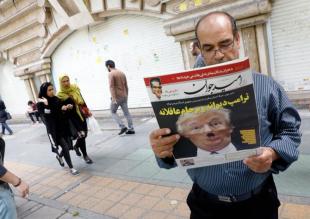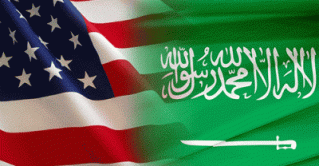DIGITAL ARTICLE | COMMENTARIES by: Debalina Ghoshal
While the recent Iranian nuclear deal drew a sigh of relief for US President Barack Obama and his administration, one ally has been less than impressed.
Since November 2013, when the first Joint Plan of Action (JPA) was implemented that directly led to the signing of the July 14 deal, Israel has shown little support for the process, voicing its concern that such arrangements would not prevent Iran from developing nuclear weapons.
Israel’s argument was simple. A nuclear energy program would keep open Iran’s options to develop the bomb, as it would allow it to conduct enrichment activities. Further, the Arak heavy water reactors (HWRs) also raised concerns for Israel. Despite Iran’s assurances of altering the design and modifying the reactors to alleviate the concerns of its critics, Israel’s Strategic Affairs Minister, Yuval Steinitz, in 2014, called such a move a “scheme” disguised to continue with Iran’s uranium enrichment program[1] as he believed that the first atomic bomb would be produced from centrifuges and not from HWRs. [2]
Israel has always demanded the complete destruction of Iranian nuclear facilities. Prime Minister Benjamin Netanyahu believes that complete destruction is the only way to prevent Iran from acquiring nuclear weapons.
The deal allows Iran to carry out a nuclear program for peaceful purposes, while restricting any scope to develop nuclear weapons.
However, Netanyahu does not buy this argument, calling it “one of the darkest days in world history.” Other Israeli officials are also of the view that the US has surrendered to the axis of evil headed by Iran.[3]
Tel Aviv is of the view that such a deal provides Iran a “sure path to nuclear weapons.”[4] Further, Israel also fears that the removal of sanctions from Iran will provide it financial strength that could be allocated to fund terrorist organizations.
Obama, on the other hand, believes that economic relief for Iran will make the state a “more conservative power” and enable the US to find a viable solution to the problems in Syria and Iraq. [5]
The US has assured Israel that it remains committed to alleviating Israel’s concerns on Iran funding and supporting terrorist organizations that pose a threat to Israel’s security. US Secretary of State John Kerry went further, saying Israel is “safer”[6] after the deal.
However, Israel is not buying this either, with Netanyahu calling it a “bad mistake of historic proportions.”[7] Kerry called Netanyahu’s comments “way over the top.” Such heated arguments prove that the historically close allies are now undergoing the lowest phase in their alliance.
Despite US assurances that the deal will reap a positive outcome for the security of the region, Netanyahu continues to condemn it, citing the example of North Korea and how, despite diplomatic moves, the state continued to move in the direction of developing nuclear weapons.[8] He believes that Iran will be the next North Korea.
While a nuclear Iran is a threat to Israel, Tel Aviv’s concern is more about US-Iran rapprochement, which, if takes a positive direction, could be detrimental to its own interests in the region. An anti-Iran US is more easily maneuvered to favor Israel than a US that is pro-Iran. Israel’s doubts started with the negotiating process for the nuclear deal. Under no circumstances did the US bend to Israeli pressure to halt Iran pursuing a nuclear capability for peaceful purposes, which Tehran has the right to under Article IV of the Nuclear Non Proliferation Treaty (NPT), of which it is a signatory.
But for the Americans there are bigger objectives. The main aim at present being to counter the Islamic State of Iraq and Levant (ISIL) threat which is looming around the world, and it feels Iran is a trustworthy partner to counter this threat.
Israel’s varied opinions
It would be wrong, however, to conclude that everyone in Israel thinks the same way as Netanyahu. Israeli military officials have displayed positivity towards the deal. [9] One senior Israeli military official was quoted in June this year as saying that measures sought by international negotiators such as stepped-up inspections of Iran's nuclear facilities and the scaling back of its uranium enrichment allow for the supposition that, in the coming period of years, “this is a threat in decline.”[10]
Former military intelligence chief, Amos Yadlin, in June 2013 said that attacking Iranian nuclear facilities would invite another Chernobyl - the Soviet Union reactor accident in 1986 sent radioactive dust across Europe.[11
However, a sanction free Iran is no doubt a worry for Israeli military officials as it increases Iran’s scope to fund asymmetric organizations like Hamas and Hezbollah. While some military officials in Israel have displayed support for the deal, leaders, such as Yair Ladir, head of the liberal centrist Yesh Atid party, have called it a foreign policy failure of Netanyahu’s government. [12]
Uzi Arad, a former National Security Council chief has not completely opposed the deal, but he has demanded that the US make clear to Iran that if it does not abide by the agreement, sanctions could be reimposed and military actions could be taken against Iran.[13]
However, Netanyahu is not alone in expressing his grievances with respect to the deal. The opposition leader from the Labor Party, Isaac Herzog, who was until last year a supporter of the Obama Administration, said in July that the deal would “unleash a lion from the cage, it will have a direct influence over the balance of power in our region, it’s going to affect our borders, and it will affect the safety of my children.”
Former foreign minister, Avigdor Lieberman, head of the Yisrael Beitinu party, has also accused the US of softening on the Iranian nuclear issue, calling it a “submission to terror.”[14] Current Defense Minister Moshe Ya’alon, has said that the deal has been constructed upon Iran’s “lies and deceit.”
The upside of the deal
Nevertheless, the deal will be advantageous for the US in it that it will give Washington an opportunity to increase its defense ties with Israel as a direct response to alleviating any concerns regarding the lifting of sanctions.
Ashton Carter, the US Defense Secretary, is all set to “bolster the security”[15] of its allies including Israel. There is already a $1.9billion arms package that has been set for Israel. [16] However, with Tel Aviv’s budget constraints,[17] it could be difficult to avail all of its defense capabilities from the US.
There is little doubt that Israel needs the US at this crucial hour, and jeopardizing these relations would only draw Washington closer to Iran and create bitterness between Israel and the US, which the Israelis may not be able to afford at present. Instead, Tel Aviv should work with the US to ensure that Iran abides by its agreements.
As an NPT member, denying Iran the right to enrichment is a violation of the NPT itself and would have a detrimental effect on other signatory states. The US, on the other hand, will have a tough time persuading Israel about the pros of the deal while also strengthening its relations with Tel Aviv.
Debalina Ghoshal is a Research Associate with the Delhi Policy Group.
[1]http://www.i24news.tv/en/news/international/140420-israel-dismisses-iran-s-arak-reactor-changes
[2]http://www.i24news.tv/en/news/international/140420-israel-dismisses-iran-s-arak-reactor-changes
[3]http://news.yahoo.com/israel-says-west-surrendered-iran-nuclear-deal-074722227.html
[4]https://www.washingtonpost.com/world/israel-blasts-iran-deal-as-dark-day-in-history/2015/07/14/feba23ae-0018-403f-82f3-3cd54e87a23b_story.html
[5]http://america.aljazeera.com/articles/2015/7/15/israel-and-saudi-arabia-brace-for-resurgent-iran.html
[6]http://www.nbcnews.com/storyline/iran-nuclear-talks/kerry-iran-deal-israel-safer-result-n391746
[7]http://www.nbcnews.com/storyline/iran-nuclear-talks/kerry-iran-deal-israel-safer-result-n391746
[8]http://www.haaretz.com/news/diplomacy-defense/1.665821
[9]http://www.economist.com/news/middle-east-and-africa/21657747-israels-military-hawks-deal-more-their-prime-minister-does-generals-demur
[10][10]Dan Williams, “Israel military says Iran nuclear threat may wane with deal,” Yahoo News, June 4, 2015,http://news.yahoo.com/israel-military-cautiously-upbeat-iran-nuclear-deal-083330296.html
[11]http://www.reuters.com/article/2013/06/02/us-iran-nuclear-israel-idUSBRE95103920130602
[12]http://www.theguardian.com/world/2015/jul/15/binyamin-netanyahu-slated-israel-foreign-policy-failure-iran-nuclear-accord
[13]http://www.economist.com/news/middle-east-and-africa/21657747-israels-military-hawks-deal-more-their-prime-minister-does-generals-demur
[14] http://www.theguardian.com/world/2015/jul/14/netanyahu-denounces-iran-nuclear-dealcriticism-israel
[15]http://www.military.com/daily-news/2015/07/15/carter-travels-to-israel-ease-relations-after-iran-nuclear-deal.html
[16]http://www.military.com/daily-news/2015/07/15/carter-travels-to-israel-ease-relations-after-iran-nuclear-deal.html
[17]http://www.nytimes.com/2015/07/16/world/middleeast/us-offers-to-help-israel-bolster-defenses-yet-nuclear-deal-leaves-ally-uneasy.html?_r=1

 English to re-enter Indonesian classrooms
English to re-enter Indonesian classrooms  New Delhi's real worry: Trump's unpredictability on Iran
New Delhi's real worry: Trump's unpredictability on Iran  Missile defense dilemma for Saudi Arabia
Missile defense dilemma for Saudi Arabia